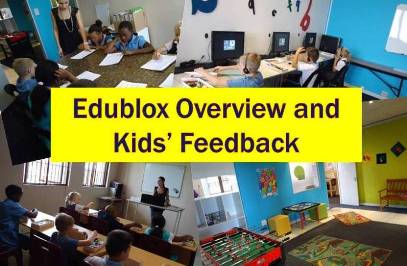
 What Is Edublox?
What Is Edublox?
Edublox is a system of cognitive exercises, aimed at developing and automatising the foundational skills of reading, spelling, writing, mathematics and the skills required in the learning of subjects such as History.
Our programme is adaptable for the gifted and less gifted, and is applicable for all age groups. It can develop the learning skills of the high school learner to a very high degree, while it can also be used to prepare the Grade R child for reading and learning.
Edublox is effective for a variety of learning difficulties: reading difficulties, maths difficulties, dyslexia and ADD/ADHD.
What skills are developed?
Attention:
• Focused attention
• Sustained attention
• Divided attention
Perception:
• Visual foreground-background differentiation
• Visual discrimination
• Form discrimination
• Spatial relations
• Visual synthesis and analysis
• Auditory foreground-background differentiation
• Auditory discrimination
• Auditory synthesis and analysis
Memory:
• Iconic memory
• Short-term memory
• Long-term memory
• Visual memory
• Auditory memory
• Sequential memory
• Working memory
Logical Thinking:
• Deductive reasoning
• Inductive reasoning
Language Skills (Edublox Classes):
• Reading
• Spelling
• Vocabulary
• Comprehension
Maths Skills (Mathblox Classes):
• Understanding of terminology
• Mental arithmetic
• Word sums
• Reading time, etc.
What should one expect?
Progress:
After about fifteen to twenty hours on the programme you may notice improvement in some non-academic areas. It may be that the learner is able to organise their work better, is more attentive in class, or is able to express themselves more easily. At first you may not be sure whether this is the result of Edublox or not.
After about thirty to forty hours on the programme you should see some significant improvements in the learner’s academics. The learner might remember more of what was said in class, spend less time to complete homework, study less but maintain the same marks for tests and exams, or attain higher (sometimes much higher) marks for tests and exams. At this point one usually starts seeing an improvement in self-esteem.
It must be noted, however, that improvement is seldom gradual. When improvement becomes noticeable, it is usually sudden. After this initial — and usually clearly visible — intellectual jump, it frequently happens that the learner finds himself on a plateau again, followed by another leap forward. This pattern can repeat itself many times.
The above scenario could be described as a “staircase effect”. However, one may occasionally also see a “snowball effect”, meaning that the initial progress is slow but as the learner continues, their progress accelerates.
Plateaus:
The learner will surely reach plateaus. This is normal. Usually the learner will plateau for some time and then surge forward again.
Breaks:
Try to limit breaks from the programme to the minimum. Long breaks can cause some of the momentum to be lost.
Don’t stop too soon:
It is important to continue with the programme until the foundational skills have been thoroughly automatised. If one stops too soon there is the danger of a relapse. The minimum time that is required to achieve this is about 90 hours, but it can take up to 240 hours if the learner has severe learning problems.
Video
What is Edublox? Who can benefit from it? To answer these questions we combined two TV programmes and a radio interview.






Leave a Reply